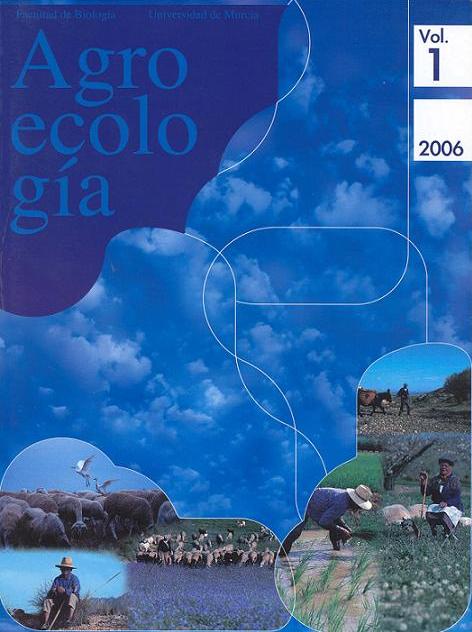CONTRIBUCIÓN DE LA AGRICULTURA ECOLÓGICA A LA MITIGACIÓN DEL CAMBIO CLIMÁTICO EN COMPARACIÓN CON LA AGRICULTURA CONVENCIONAL
Resumen
El sistema climático está determinado por un complejo sistema de variables, fundamentalmente por la emisión de combustibles fósiles y otros gases. Esto provoca un calentamiento global de la superficie de la tierra que altera los ciclos naturales de energía, produciéndose graves impactos ambientales. Existe un amplio consenso en que el calentamiento global de la tierra es causado por el aumento de las emisiones antropógenas de distintos Gases de Efecto Invernadero (GEIs). España ha asumido el compromiso de limitar el incremento de las emisiones netas de 6 GEIs al 15% respecto de lo emitido en el año 1990, que se toma como año base, durante el quinquenio 2008-2012. En el año 2004 el índice anual de las emisiones de España estaba en torno al 145% que supera en mucho el 115 % comprometido. La agricultura ecológica (AE) puede reducir sensiblemente las emisiones de CO2 al tratarse de un sistema permanente de producción sostenida, por el ahorro energético que supone el mantenimiento de la fertilidad del suelo mediante inputs internos (rotaciones, abonos verdes, cultivo de leguminosas, etc.), por la ausencia del uso de fitosanitarios y fertilizantes de síntesis y los bajos niveles de la externalización en la alimentación del ganado. La efi ciencia de captación de carbono en sistemas de producción ecológica es de 41,5 t de CO2 por hectárea, mientras que en los sistemas de producción convencional se reduce a 21,3 t de CO2 por hectárea.Descargas
Las obras que se publican en esta revista están sujetas a los siguientes términos:
1. El Servicio de Publicaciones de la Universidad de Murcia (la editorial) conserva los derechos patrimoniales (copyright) de las obras publicadas, y favorece y permite la reutilización de las mismas bajo la licencia de uso indicada en el punto 2.
2. Las obras se publican en la edición electrónica de la revista bajo una licencia Creative Commons Reconocimiento-NoComercial-SinObraDerivada 3.0 España (texto legal). Se pueden copiar, usar, difundir, transmitir y exponer públicamente, siempre que: i) se cite la autoría y la fuente original de su publicación (revista, editorial y URL de la obra); ii) no se usen para fines comerciales; iii) se mencione la existencia y especificaciones de esta licencia de uso.
3. Condiciones de auto-archivo. Se permite y se anima a los autores a difundir electrónicamente las versiones pre-print (versión antes de ser evaluada) y/o post-print (versión evaluada y aceptada para su publicación) de sus obras antes de su publicación, ya que favorece su circulación y difusión más temprana y con ello un posible aumento en su citación y alcance entre la comunidad académica. Color RoMEO: verde.





